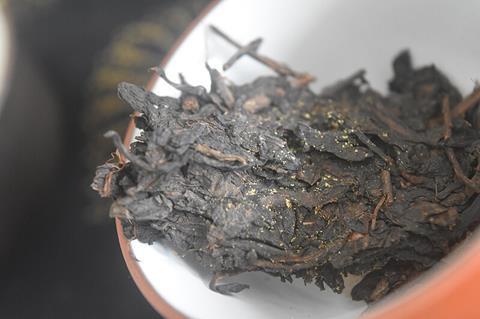Eurotium cristatum (E. cristatum), commonly known as the ‘golden flower’, is a dominant microbial strain in the fermentation process of Fu brick tea.

A new paper reviews the significant biological characteristics and fermentation applications of E. cristatum, highlighting its enzyme production, antimicrobial properties, immune regulation, antitumor activities, fat reduction, and weight loss benefits. Understanding these properties is crucial for improving the quality of fermented teas and enhancing their health benefits.
E. cristatum was initially isolated from Fu brick tea and has undergone various nomenclature changes due to advances in microbial identification technology. Originally named Aspergillus chevalieri in 1983, it was later renamed due to identification conflicts, finally being established as Eurotium cristatum. Studies have revealed that the golden flower fungus comprises multiple species, including Aspergillus chevalieri and Aspergillus cristatus.
E. cristatum exhibits several favorable biological characteristics:
- Enzyme Production: E. cristatum produces a variety of extracellular enzymes, such as hydrolases and oxidoreductases. These enzymes play crucial roles in the transformation, degradation, polymerization, and oxidation of tea substrates, significantly affecting the chemical composition and quality of fermented tea. The production of these enzymes enables the breakdown of complex compounds in tea, enhancing the flavor, aroma, and health benefits of the final product.
- Antimicrobial Properties: The fermentation supernatants of E. cristatum exhibit antimicrobial activity, which can inhibit the growth of harmful bacteria. This property not only contributes to the safety and shelf life of fermented teas but also offers potential health benefits by reducing pathogenic bacteria in the gut.
- Immune Regulation and Antitumor Effects: E. cristatum has been shown to have immune-regulating properties and antitumor effects. It can modulate the immune response, enhancing the body’s ability to fight infections and diseases. Additionally, studies have demonstrated its potential in inhibiting tumor growth, suggesting a promising role in cancer prevention and therapy.
- Fat Reduction and Weight Loss: The probiotic characteristics of E. cristatum also contribute to fat reduction and weight loss. This makes it a valuable component in functional foods and health supplements, supporting weight management and overall health. The fermentation process enhances the bioavailability of compounds that promote metabolism and fat oxidation.
In the tea fermentation process, E. cristatum secretes a variety of extracellular enzymes that metabolize and transform the chemical components of tea through oxidation, degradation, and condensation reactions. These biochemical transformations enhance the quality, flavor, and health benefits of the tea. E. cristatum can be combined with different tea substrates to produce a variety of fermented teas, each with unique flavors and health benefits. This versatility allows for the creation of diverse tea products that cater to different consumer preferences.
E. cristatum is a vital strain in the fermentation of Fu brick tea, with numerous beneficial biological properties and significant applications in tea production. Addressing the challenges in its fermentation application can enhance its utilization, providing a rich theoretical basis for future developments in fermented tea products. By leveraging the unique properties of E. cristatum, the tea industry can produce high-quality fermented teas with enhanced health benefits, catering to the growing demand for functional foods and beverages.







No comments yet